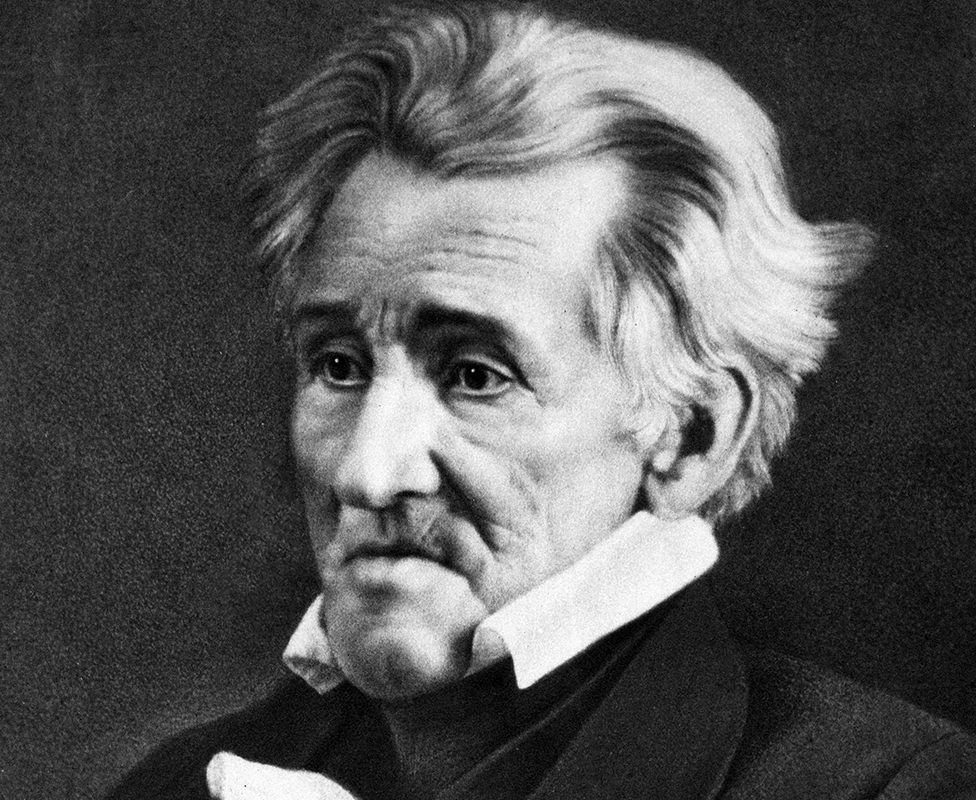Trump Fuzzy on Andrew Jackson, Civil War History

President Donald Trump delivered pronouncements yesterday (May 1) about President Andrew Jackson and the Civil War that left many people scratching their heads over the current president's interpretation of American history.
In an audio interview clip shared on Twitter by the political news radio channel SiriusXM Politics, Trump told Washington Examiner reporter Salena Zito that Jackson was "really angry that he saw what was happening with regard to the Civil War," adding that Jackson said, "There's no reason for this."
Trump did not mention a time frame or context for the former president's supposed displeasure concerning what he "saw." However, Jackson died on June 8, 1845, and the American Civil War began in 1861. [6 Civil War Myths, Busted]
Later that day, Trump reiterated his claims about Jackson in a tweet, insisting that even though Jackson died 16 years before the Civil War began, the former president nonetheless "saw it coming and was angry." Trump added that if Jackson had been leading the country at the time, he "would never have let it happen!"
Jackson, like Trump, was considered a Washington outsider. The 19th-century president favored a "plain and simple" approach to politics that resonated with voters and won him two terms in the White House. As President, "he sought to act as the direct representative of the common man," according to a biography published online by the White House website.
A portrait of the late Jackson is prominently displayed in Trump's Oval Office. And Trump has previously acknowledged that he greatly admires Jackson, calling him "an amazing figure in American history." Meanwhile, Trump's supporters have enthusiastically compared the current president to the populist Jackson, The New York Times reported in January.
But even a president's admiration must be tempered with reality, and there is little evidence to suggest that Jackson anticipated the Civil War, let alone that he would have been able to stop it, American historian Eric Foner, a professor of history at Columbia University in New York City, told Live Science in an email.
Sign up for the Live Science daily newsletter now
Get the world’s most fascinating discoveries delivered straight to your inbox.
"Jackson would certainly have opposed secession. He was a very strong nationalist," Foner explained.
Jackson adamantly favored a powerful federal government. In 1833, when South Carolina sought to reject a tariff already passed by Congress, Jackson sent armed forces into Charleston; privately, he threatened to hang the opposition leader, according to the White House website's biography of Jackson.
So, it seems unlikely that Jackson would have accepted the secession of slave states from the United States. And as far as the Civil War is concerned, it appears equally unlikely that Jackson, as Trump claimed, would "never have let it happen," Foner added.
"There is no reason to think that were he alive or president in 1860 to 1861 he would have been any more successful than others in preventing [the] Civil War," Foner told Live Science.
Original article on Live Science.

Mindy Weisberger is an editor at Scholastic and a former Live Science channel editor and senior writer. She has reported on general science, covering climate change, paleontology, biology and space. Mindy studied film at Columbia University; prior to Live Science she produced, wrote and directed media for the American Museum of Natural History in New York City. Her videos about dinosaurs, astrophysics, biodiversity and evolution appear in museums and science centers worldwide, earning awards such as the CINE Golden Eagle and the Communicator Award of Excellence. Her writing has also appeared in Scientific American, The Washington Post and How It Works Magazine. Her book "Rise of the Zombie Bugs: The Surprising Science of Parasitic Mind Control" will be published in spring 2025 by Johns Hopkins University Press.









